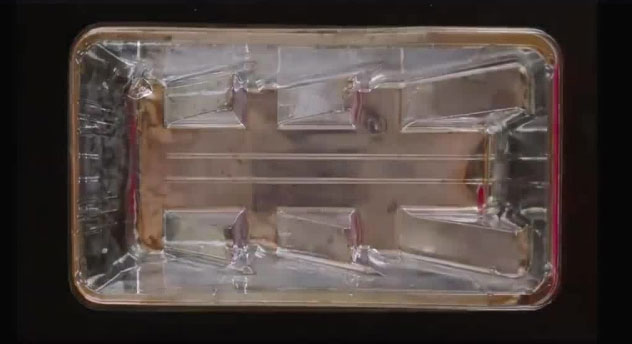Developed enzyme that breaks down plastic waste in 24 hours
The team at the University of Texas developed an enzyme that effectively degrades PET plastic at temperatures of 30 - 50 degrees Celsius and a variety of pH levels.
The method of using enzymes to break down plastic waste is reaping many breakthroughs, showing that they are increasingly efficient, can even turn materials into simple molecules. Research published in the journal Nature on April 27 marks another step forward when a team of experts at the University of Texas (USA) used machine learning technology to create an enzyme with the ability to break down certain forms of plastic only. for 24 hours and has high stability, suitable for large-scale application.
Scientists have been exploring the potential of enzymes to aid in plastic recycling for more than a decade, and some significant progress has taken place in the last six years or so. In 2016, Japanese researchers discovered a bacterium that uses enzymes to break down PET plastic in a matter of weeks. PETase, modified versions of these enzymes, further enhances performance. In 2020, scientists develop an even stronger version that digests PET plastic at six times the rate.
The team at the University of Texas wanted to overcome some of the enzyme's limitations. The application of this method, they say, is hampered by its inability to perform well at low temperatures and different pH levels, its lack of effectiveness in dealing with untreated plastic waste directly, its reaction speed, and its relative speed. slow.

New enzyme proved superior in degrading PET plastic at temperatures from 30 - 50 degrees C
The team of experts who developed a machine learning model that can predict which mutations in the PETase enzyme will give it remarkable capabilities. They studied a variety of PET plastic products, including containers, water bottles and fabrics, and then used the model to design and build a new innovative enzyme called FAST-PETase.
The new enzyme proved to be superior in degrading PET plastic at temperatures from 30 - 50 degrees Celsius and at many pH levels. It can almost completely decompose 51 different untreated PET products in a week's time. In some experiments, it even took just 24 hours to break down the plastic. The team also demonstrated a closed PET recycling process, in which FAST-PETase breaks down the plastic, then allowing the recovery of monomers to chemically regenerate the material.
"When considering environmental cleaning solutions, you need an enzyme that can function at normal ambient temperatures. This is what makes our technology so powerful in the future," the study's authors said. Hal Alper said.
New technology has the ability to quickly decompose plastic waste at low temperatures. Therefore, the team believes they have found a portable, affordable solution that can be applied on an industrial scale. They have filed a patent for the new technology and hope it will be used in landfills and polluted areas.
- How will the new enzyme destroy plastic?
- Successfully developed enzymes capable of decomposing plastics
- How long does it take for plastic waste to decompose?
- Vietnam is the top 5 countries that discharge most plastic waste into the sea
- Turning plastic into petroleum: 2-in-1 solution for plastic waste
- Creating plastic can decay in seawater
- What happens to a plastic bottle after being thrown into the trash?
- The danger of the ocean
- Detection of bacteria capable of biodegradable plastic
- Tragedy: Whales are eating hundreds and thousands of plastic trash every day
- For the first time Vietnam built roads from plastic waste
- Alarm plastic trash appears in the fry
 Is the magnetic North Pole shift dangerous to humanity?
Is the magnetic North Pole shift dangerous to humanity? Washington legalizes the recycling of human bodies into fertilizer
Washington legalizes the recycling of human bodies into fertilizer Lightning stone - the mysterious guest
Lightning stone - the mysterious guest Stunned by the mysterious sunset, strange appearance
Stunned by the mysterious sunset, strange appearance Even if humanity becomes extinct, these three traces of humanity will still exist almost forever!
Even if humanity becomes extinct, these three traces of humanity will still exist almost forever!  Microplastics found in more than 50% of clogged atherosclerotic plaques
Microplastics found in more than 50% of clogged atherosclerotic plaques  New Biodegradable Plastic Invention Leaves No Microplastics Behind
New Biodegradable Plastic Invention Leaves No Microplastics Behind  Mealworms - a promising solution to the threat of plastic waste
Mealworms - a promising solution to the threat of plastic waste  More than 6 million tons of plastic waste are floating in rivers, lakes and oceans.
More than 6 million tons of plastic waste are floating in rivers, lakes and oceans.  Turning plastic waste into a trendy trend
Turning plastic waste into a trendy trend 